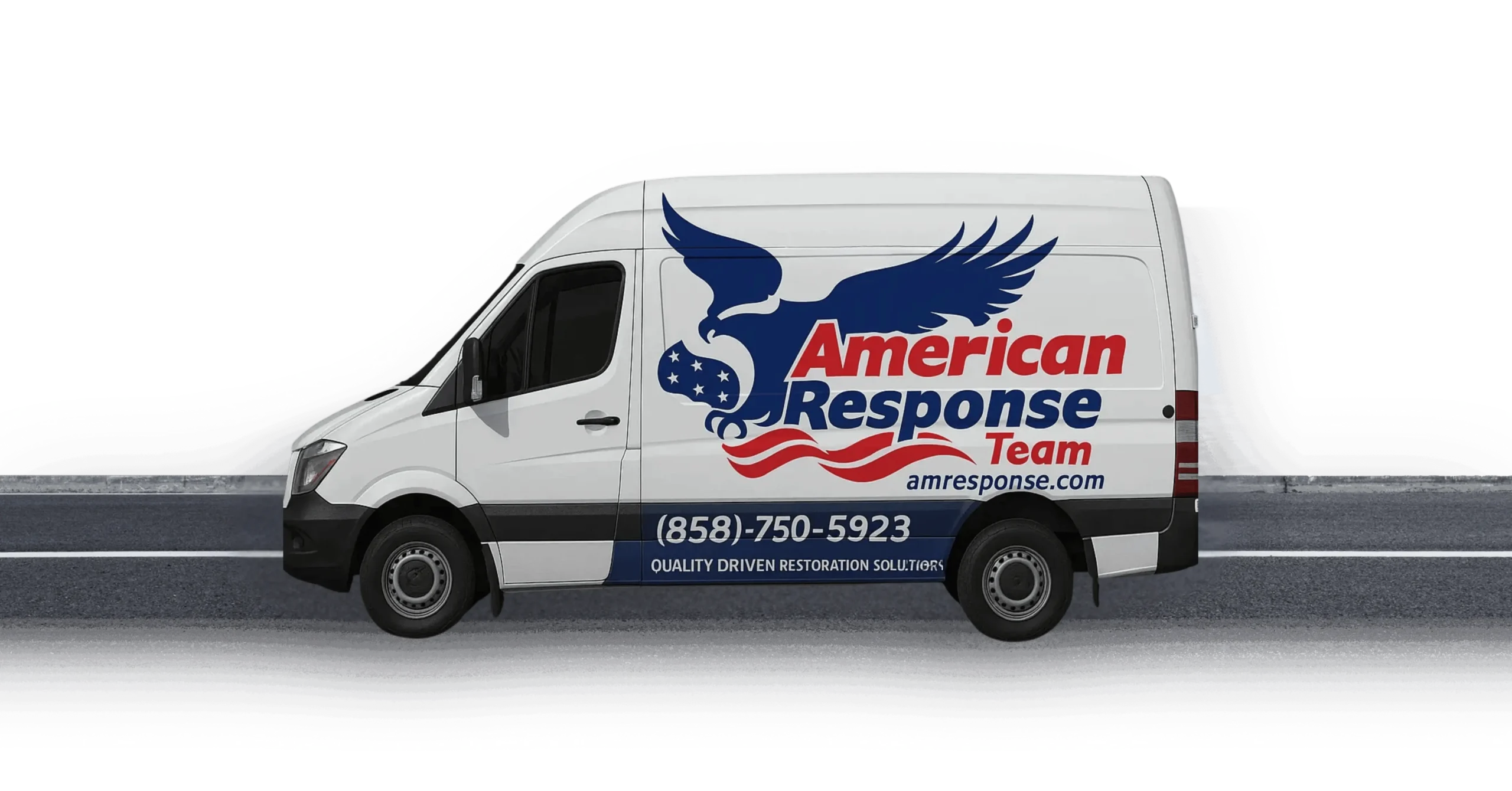When something terrible happens in your home, the last thing you want to worry about is money. But if you’re facing a biohazard situation, you might be wondering: does homeowners insurance cover biohazard cleanup? The answer isn’t always simple, but we’re here to help you understand what you need to know.
Most people never think about biohazard cleanup until they need it. Whether it’s from a tragic accident, crime, or medical emergency, these situations require special cleaning that goes way beyond regular housework. The good news is that many homeowners insurance policies do cover biohazard cleanup costs, but there are important details you should understand.
What Exactly Is Biohazard Cleanup?
Before we talk about whether homeowners insurance covers biohazard cleanup, let’s understand what it means. Biohazard cleanup involves safely removing and cleaning up dangerous materials that could harm your health. This includes blood, bodily fluids, chemicals, mold, and other substances that can spread disease.
According to the Centers for Disease Control and Prevention (CDC), these materials require special handling because they can contain harmful germs that make people sick. Professional cleanup teams use special equipment and follow strict safety rules to make sure everything is cleaned properly.
Common situations that need biohazard cleanup include unattended deaths, accidents with injuries, crime scenes, sewage backups, and severe mold problems. If you’re dealing with any of these situations in San Diego County, biohazard cleanup services can help restore your home safely.
Does Homeowners Insurance Cover Biohazard Cleanup? The Basic Answer
Here’s the straightforward answer: yes, most standard homeowners insurance policies do cover biohazard cleanup. Insurance companies usually treat biohazard cleanup the same way they treat other emergency cleanups, like fire damage or water damage.
When insurance companies decide whether homeowners insurance covers biohazard cleanup, they look at what caused the problem. If the biohazard happened because of a sudden, unexpected event (called a “covered peril”), your insurance will likely help pay for cleanup.
Most homeowners insurance policies include coverage for crime scenes, accidents, and traumatic events. This means if someone breaks into your home, has a medical emergency, or if there’s an accident that creates biohazardous conditions, your insurance should help with the cleanup costs.
When Does Homeowners Insurance Cover Biohazard Cleanup?
Understanding when homeowners insurance covers biohazard cleanup helps you know what to expect. Here are the most common situations where coverage applies:
Crime-Related Incidents: If your home becomes a crime scene, your insurance typically covers the cleanup. This includes situations involving violence, break-ins, or other criminal activities that leave behind biological materials.
Accidental Deaths or Injuries: When someone has a serious accident in your home, the resulting biohazard cleanup is usually covered. This could include falls, medical emergencies, or other unplanned events.
Sudden Water Damage Leading to Contamination: If a pipe bursts and creates conditions for dangerous mold growth or sewage contamination, your policy likely covers both the water damage restoration and biohazard cleanup.
Vandalism: When vandals damage your property and leave behind biohazardous materials, insurance companies typically consider this a covered event.
The key factor is whether the situation was sudden and unexpected. Insurance works by covering things you couldn’t predict or prevent.
When Homeowners Insurance Might NOT Cover Biohazard Cleanup
While most policies do cover biohazard cleanup, there are times when homeowners insurance doesn’t cover biohazard cleanup costs. Understanding these exclusions helps you avoid surprises:
Named Peril Policies: Some cheaper insurance policies only cover specific events listed in the policy. If biohazard cleanup isn’t specifically mentioned, you might not have coverage.
Maintenance-Related Problems: If the biohazard developed because you didn’t maintain your home properly, insurance might not help. For example, if you ignored mold problems for months and they got worse, that’s considered negligence.
Intentional Acts by the Homeowner: Insurance doesn’t cover situations that the homeowner caused on purpose. This is one area where the question “does homeowners insurance cover biohazard cleanup” gets complicated.
High Deductibles: Even when your policy covers biohazard cleanup, you still have to pay your deductible first. If your deductible is higher than the cleanup cost, filing a claim might not make financial sense.
Illegal Activities: If the biohazard resulted from illegal drug production or other criminal activities by the homeowner, insurance typically won’t cover the cleanup costs.
How Much Does Biohazard Cleanup Cost?
When wondering whether homeowners insurance covers biohazard cleanup, it helps to understand the costs involved. Professional biohazard cleanup typically costs between $1,500 and $15,000, depending on how severe the situation is.
Simple cleanups, like small blood spills from accidents, might cost around $1,500 to $3,000. More extensive situations, such as unattended deaths or major crime scenes, can cost $5,000 to $15,000 or even more.
The cost depends on several factors: how much area needs cleaning, what type of materials are involved, how long the contamination has been there, and what needs to be removed or replaced. Sometimes, reconstruction services are needed if flooring, walls, or other structural elements must be replaced.
These high costs make insurance coverage really important. Most families can’t easily afford thousands of dollars for emergency cleanup, especially during an already difficult time.
What to Do If You Need Biohazard Cleanup
If you’re facing a biohazard situation, here’s what you should do to make sure your insurance claim goes smoothly:
Call Emergency Services First: If there’s been an accident, crime, or medical emergency, call 911 before worrying about cleanup. Your safety comes first.
Contact Your Insurance Company: Call your insurance company as soon as it’s safe to do so. Ask them directly: “does homeowners insurance cover biohazard cleanup in my situation?” They’ll guide you through the claims process.
Document Everything: Take photos of the affected area before any cleanup begins. This documentation helps support your insurance claim and shows the extent of damage.
Call Professional Cleanup Services: Don’t try to clean biohazardous materials yourself. Contact experienced professionals who follow OSHA and CDC safety guidelines. In San Diego County, American Response Team provides 24/7 emergency response for biohazard situations.
Keep All Receipts: Save documentation of all costs related to the cleanup, temporary housing, and any damaged belongings. Your insurance company will need these for reimbursement.
Don’t Sign Anything Without Understanding: Some insurance companies might try to use their preferred cleanup companies. You have the right to choose your own contractor, just like with fire damage claims.
Working with Insurance Companies on Biohazard Claims
Getting your insurance company to pay for biohazard cleanup isn’t always automatic, even when homeowners insurance covers biohazard cleanup in your policy. Here’s how to protect yourself:
Understand Your Policy Limits: Most policies have limits on how much they’ll pay for cleanup. Know these limits before you start the process.
Know Your Deductible: You’ll need to pay your deductible before insurance coverage kicks in. Deductibles for biohazard cleanup typically range from $250 to $2,500.
Get Multiple Estimates: Just like with other insurance claims, get estimates from several qualified cleanup companies. This helps ensure fair pricing and gives you options.
Be Honest but Strategic: When explaining the situation to your insurance company, stick to the facts. How you describe what happened can affect whether your claim is approved.
Professional cleanup companies often help with insurance claims because they understand the process. They can provide detailed documentation, work with adjusters, and help ensure you get the coverage you deserve.
Special Considerations for Different Types of Policies
Not all homeowners insurance policies are the same. Whether homeowners insurance covers biohazard cleanup depends partly on what type of policy you have:
HO-3 Policies (Most Common): These comprehensive policies usually cover biohazard cleanup unless it’s specifically excluded. This is the standard policy most homeowners have.
HO-1 and HO-2 Policies (Basic Coverage): These older, more limited policies might not cover biohazard cleanup unless it’s specifically listed as a covered peril.
HO-4 Policies (Renters Insurance): These cover personal belongings but not structural cleanup. If you’re renting, your landlord’s insurance should handle biohazard cleanup of the structure.
HO-6 Policies (Condo Insurance): Coverage depends on what your condo association’s master policy covers versus your individual policy.
If you’re not sure what type of policy you have, call your insurance agent. Understanding your coverage before you need it can save you stress and money later.
Regional Considerations in San Diego County
In San Diego County, where American Response Team serves communities from La Jolla to Escondido, there are some local factors that affect biohazard cleanup coverage:
Earthquake Coverage: California requires separate earthquake insurance. If an earthquake causes conditions leading to biohazard contamination, your regular policy might not cover it.
Wildfire Considerations: With San Diego’s fire season risks, smoke damage that leads to indoor air quality problems might require special cleanup.
Flood Insurance: Standard homeowners policies don’t cover flooding. If flood damage leads to biohazard conditions, you’d need separate flood insurance for coverage.
Local Regulations: San Diego County has specific requirements for biohazard disposal that professional cleanup companies must follow. Using licensed local contractors ensures compliance with these rules.
Preventing Biohazard Situations
While you can’t prevent every situation that might require biohazard cleanup, you can reduce your risks:
Regular Maintenance: Keep up with home maintenance to prevent problems like sewage backups or water damage that could lead to dangerous mold growth.
Install Security Systems: Good security can help prevent break-ins that might result in crime scene cleanup needs.
Address Water Problems Quickly: Don’t ignore leaks or water damage. Quick action prevents mold and other biohazard situations.
Know the Warning Signs: Learn how to spot mold problems early before they become serious health hazards.
Getting Professional Help
When you’re dealing with the question “does homeowners insurance cover biohazard cleanup,” having the right professional help makes all the difference. Experienced cleanup companies understand insurance requirements and can help you navigate the claims process.
American Response Team has worked with insurance companies throughout San Diego County for years. We understand what documentation insurers need, how to communicate with adjusters, and how to ensure you get the coverage you deserve.
Our team is IICRC certified and follows all CDC and OSHA guidelines for safe biohazard cleanup. We also handle the insurance paperwork, so you can focus on your family during a difficult time.
If you’re facing a biohazard situation in San Diego County, don’t wait. Contact our emergency response team 24/7 for immediate help. We’ll assess your situation, work with your insurance company, and restore your home safely and properly.
The Bottom Line
So, does homeowners insurance cover biohazard cleanup? In most cases, yes – but the details matter. Standard policies typically cover cleanup from sudden, unexpected events like crimes, accidents, and emergencies. However, coverage can vary based on your specific policy type, the cause of the biohazard, and how you handle the claims process.
The most important things to remember are: read your policy carefully, document everything, work with qualified professionals, and don’t try to handle biohazardous materials yourself. Professional cleanup protects your health and helps ensure your insurance claim is handled properly.
When disaster strikes, you need a team you can trust. Contact American Response Team for expert biohazard cleanup services throughout San Diego County. We’re here to help 24/7, and we’ll work directly with your insurance company to make this difficult time a little easier.

